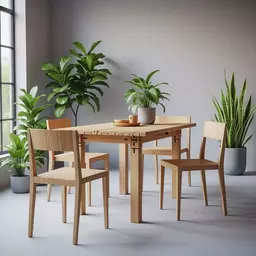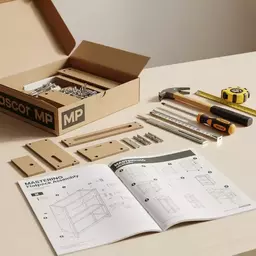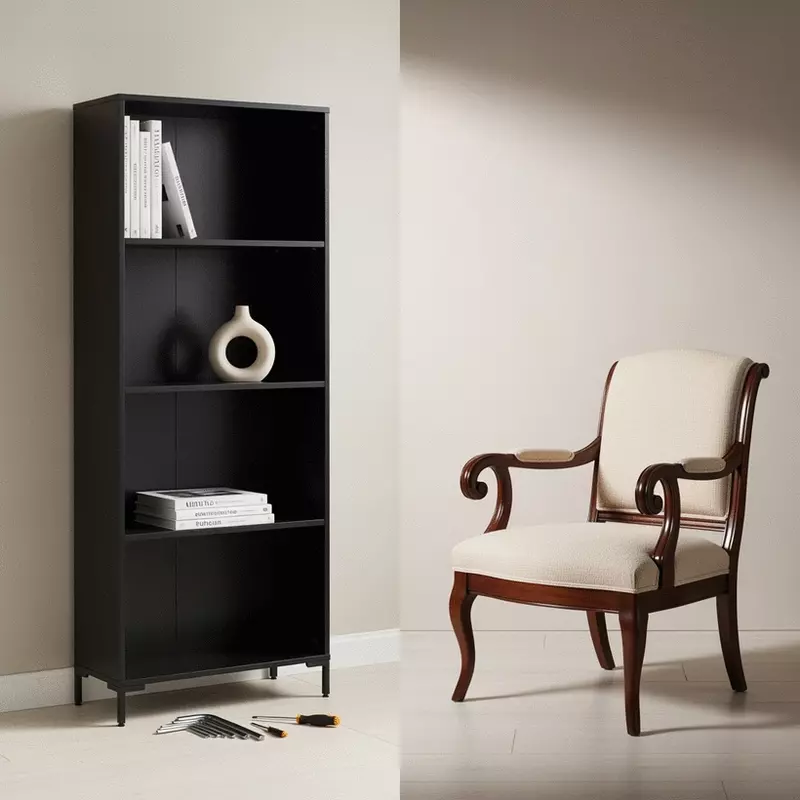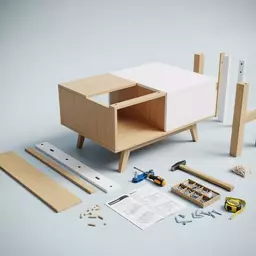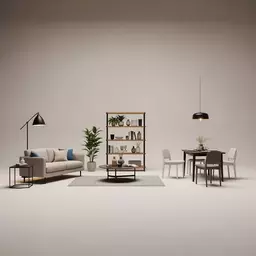Flatpack Furniture and Sustainable Living
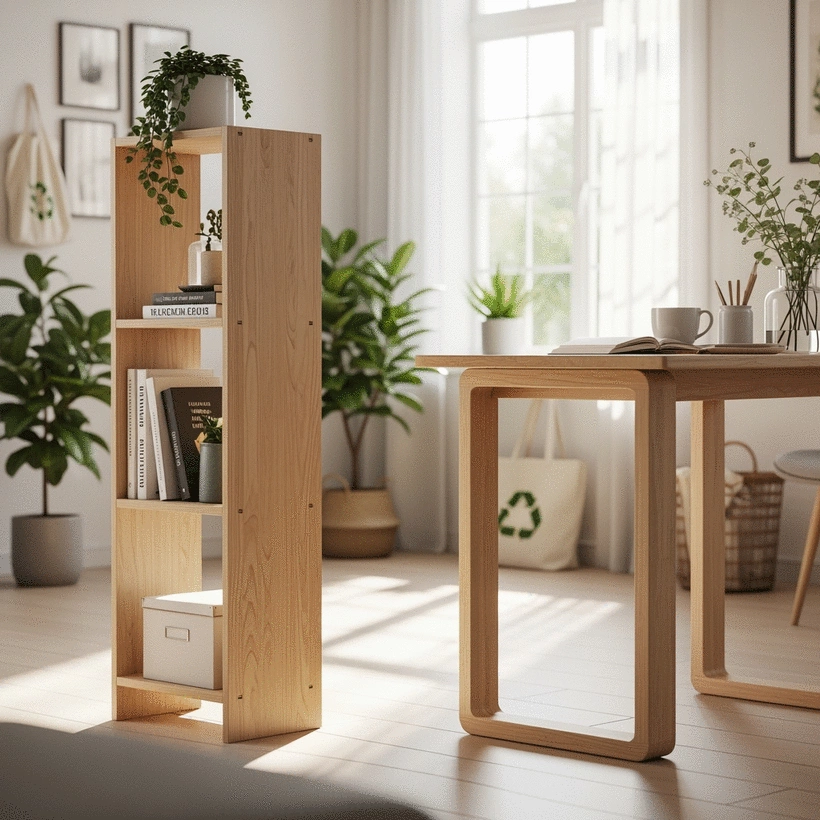
As the world becomes increasingly mindful of its environmental footprint, the furniture we choose plays a crucial role in our sustainability efforts. Flatpack furniture not only offers convenience but also aligns with eco-conscious living. Let's explore the key insights that can guide your choices towards a more sustainable future.
What You Will Learn
- Flatpack furniture reduces transport emissions, making it a smarter choice for the environment.
- It minimizes packaging waste, contributing to less landfill impact.
- Eco-friendly materials are often used in flatpack products, ensuring a lower environmental footprint.
- Choosing flatpack supports a circular economy through recycling and repurposing initiatives.
- The rise of eco-conscious consumers is shaping the market towards more sustainable and ethically sourced furniture options.
- Responsible consumer behavior, such as researching brands and supporting local manufacturers, enhances sustainability in purchases.
The Sustainable Impact of Flatpack Furniture
Flatpack furniture offers significant benefits for sustainable living, from reducing emissions to promoting a circular economy. Discover how it aligns with eco-conscious principles below.
Environmental Impact Reduction
- • Reductions in transport emissions
- • Minimizes packaging waste
- • Utilizes eco-friendly materials
Fostering Circular Economy
- • Encourages recycling & repurposing
- • Supports repair & upcycling
- • Modular designs for adaptability
Consumer Benefits & Behavior
- • Cost-effective solutions
- • Empowers DIY customization
- • Increases eco-conscious choices
Responsible Purchasing Strategies
- • Research brand sustainability
- • Support local manufacturers
- • Look for eco-certifications
Understanding the Role of Flatpack Furniture in Sustainable Living
Flatpack furniture has taken the world by storm, and for good reason! It's not just about convenience and affordability; it plays a significant role in promoting sustainable living. But what exactly is flatpack furniture, and why should we care? Let’s break it down together!
What is Flatpack Furniture and Why Does It Matter?
Flatpack furniture, often known as ready-to-assemble (RTA) furniture, comes in a compact package that you build yourself. This approach not only saves space during shipping—reducing transport emissions—but also cuts down costs for consumers. Plus, it empowers you to take charge of your home decor, allowing for a personalized touch!
- Space-efficient design that minimizes transportation
- Cost-effective solutions for budget-conscious shoppers
- Empowers creativity through DIY assembly
By opting for flatpack options, you can contribute to a more sustainable future while enjoying the satisfaction of assembling your own furniture. It’s a win-win for both your wallet and the environment!
How Flatpack Furniture Aligns with Sustainable Living Principles
Flatpack furniture aligns beautifully with the core principles of sustainable living. Here, the focus is on reducing waste and making conscious choices. By choosing flatpack, you’re embracing a lifestyle that prioritizes functionality and minimalism. A study from the University of Iowa highlighted the crucial role of innovative furniture design, including flatpack, in addressing environmental concerns through reduced material use and efficient logistics. This approach supports a circular economy through reuse and recycling.
- Less material waste due to efficient designs
- Encourages a more thoughtful approach to purchasing
- Supports a circular economy through reuse and recycling
In my journey with Flatpack Hub, I've seen firsthand how these choices help not only individuals but also communities become more eco-friendly. When we purchase flatpack furniture, we make a statement about our values and priorities!
Exploring the Rise of Eco-Conscious Consumers in Flatpack Furniture Choices
As a DIY enthusiast, I’ve noticed a significant shift in consumer behavior. More people are becoming aware of their environmental impact, and this has led to a rise in eco-conscious choices in flatpack furniture. Consumers are now actively seeking products that reflect their values of sustainability and ethical sourcing. This trend, as discussed by SAGE Publishing, indicates a growing emphasis on cultivating sustainable living through strategic communication about eco-friendly choices.
- Growing demand for eco-friendly materials
- Preference for local and sustainable brands
- Increased interest in DIY customization and upcycling
This trend is heartening and suggests a brighter future for sustainable living! By embracing flatpack furniture, we can collectively make a difference and help create spaces that reflect our commitment to the environment.
We Want to Hear From You!
As you consider the impact of your furniture choices, we’d love to know: What factors influence your decision when selecting flatpack furniture? Is it sustainability, cost, design, or something else? Share your thoughts below:
Making Informed Choices for a Sustainable Future
In today's world, understanding the interplay between flatpack furniture and sustainability is crucial. At Flatpack Hub, we emphasize that making informed choices not only impacts our homes but also the environment. Let’s review some of the key insights that highlight how flatpack furniture can contribute to a more sustainable future.
First and foremost, it's important to remember that sustainable living is a journey. By choosing flatpack furniture, we embrace a style that is often designed with efficiency and environmental consciousness in mind. Here are some essential takeaways:
- Flatpack furniture reduces transport emissions.
- It minimizes packaging waste.
- It often utilizes eco-friendly materials.
- It encourages recycling and repurposing.
Embracing these points can lead to more informed purchasing decisions, ensuring that we contribute positively to our planet.
Summary of Key Insights on Flatpack Furniture and Sustainability
We’ve explored how flatpack furniture serves as a smart solution for eco-conscious consumers. The compact design means more efficient transport, reducing greenhouse gas emissions. On top of that, the emphasis on sustainability means many brands are prioritizing recycled materials and reducing packaging waste. Insights from the London School of Economics further elaborate on how the furniture industry is adapting to address environmental and social challenges, emphasizing sustainable practices.
In summary, the journey towards sustainable living through flatpack choices includes:
- Opting for furniture made from recycled or sustainably sourced materials.
- Being mindful of the environmental impact of our furniture choices.
- Considering the longevity and lifecycle of flatpack products.
These insights can equip us to make decisions that align with our sustainability goals.
Encouraging Responsible Consumer Behavior in Furniture Purchases
As you navigate your furniture purchasing decisions, fostering responsible consumer behavior is essential. At Flatpack Hub, I encourage you to ask questions that matter! Consider the brand’s commitment to sustainability and the materials used in their products.
Here are some effective strategies to promote responsible buying:
- Research the brands and their sustainability practices.
- Support local manufacturers who prioritize eco-friendly processes.
- Look for certifications that promote sustainable practices.
By being proactive in our choices, we can all help to cultivate a market that values sustainability and creativity in design.
Exploring Circular Economy Principles in Flatpack Furniture Usage
The concept of a circular economy focuses on minimizing waste and making the most of resources. Flatpack furniture naturally aligns with these principles. By designing products that are easily assembled and disassembled, we can extend their life or repurpose them for new uses.
Here are a few ways to embrace circular economy principles in your flatpack purchases:
- Choose modular furniture that can adapt to changing needs.
- Repair and upcycle older pieces instead of discarding them.
- Participate in local buy-back or recycling initiatives.
By adopting these practices, we not only enhance our living spaces but also contribute to a sustainable future for our planet!
Frequently Asked Questions about Flatpack Furniture and Sustainability
- Q: How does flatpack furniture reduce environmental impact?
- A: Flatpack furniture reduces environmental impact by minimizing packaging waste and transport emissions due to its compact design. Many brands also use eco-friendly materials.
- Q: What are the key benefits of choosing flatpack furniture for sustainable living?
- A: Key benefits include reduced material waste, encouragement of thoughtful purchasing, and support for a circular economy through reuse and recycling.
- Q: How can consumers make more eco-conscious choices when buying flatpack furniture?
- A: Consumers can make eco-conscious choices by researching brands for their sustainability practices, supporting local manufacturers, and looking for eco-certifications.
- Q: What is the circular economy, and how does flatpack furniture fit into it?
- A: The circular economy focuses on minimizing waste and maximizing resource use. Flatpack furniture fits in by being designed for easy assembly, disassembly, repair, and repurposing, extending its lifecycle.
- Q: Are there specific materials to look for in sustainable flatpack furniture?
- A: Yes, look for flatpack furniture made from recycled, sustainably sourced, or rapidly renewable materials. Certifications like FSC (Forest Stewardship Council) can also indicate sustainable sourcing.
Recap of Key Points
Here is a quick recap of the important points discussed in the article:
- Flatpack furniture minimizes transport emissions and packaging waste.
- It often utilizes eco-friendly materials and encourages recycling.
- Choosing flatpack supports a circular economy through reuse and upcycling.
- Consumers are shifting towards eco-conscious choices in their furniture purchases.
- Being informed about brands' sustainability practices is essential for responsible consumer behavior.
